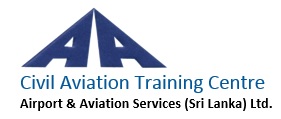

 |
 |
|
Lesson 2: Functions of our company (ctd.)
|
[Page 2.3] |
|
Airport service function (ctd.) |
|
|
Generally, the airport service function at a commercial airport will include the following: |
|
|
|
|
|
|
|
|
|
|
|
Passenger and baggage facilitation:
|
|
|
|
Obviously, the passenger is the primary user of an airport. So all airports must be prepared to cater to the requirements and needs of the passenger. A passenger who has come to the airport to catch a flight, whom we call a departing passenger must be able to come into the airport without inconvenience, check-in to his flight, go through emigration and board his flight. Similarly a passenger who disembarks from a flight that has landed, whom we call an arriving passenger must be able to clear immigration, claim his baggage, clear customs and come out of the airport as soon as possible. The airport must have arrangements in place to cater to all these.
|
|
|
Arriving passengers (The terms 'Arrival' and 'Departure' are always related to the flight; not to the airport. An arriving passenger is a passenger who has arrived at the airport aboard a flight that has arrived; not a passenger who arrives at the airport to catch a departing flight)
|
|||
|
Sometimes passengers may need additional help or special attention. A passenger who cannot walk may require wheel chair assistance. A passenger who is not familiar with the language used in a form may require assistance to fill it. The airport must have arrangements for these as well. |
|
|
|
|
|
|
|
Some of the requirements of the passenger are fulfilled by the airport while some others are fulfilled by the airline. Nevertheless, for the airline to provide the necessary services to the passenger, the airport must provide the necessary facilities to the airline. For example, the airport must provide parking facilities for a person who is coming to pick an arriving passenger. The airport must have medical facilities to cater to sick passengers. These are facilities the airport should provide. Meanwhile, it is the airline that operates the check-in counters where passenger is issued his boarding pass and his baggage is accepted for carrying. To do these, the airline needs facilities like counters, computer networks and communication, baggage conveyor belts etc. Now it is the airport that must provide the airlines all these facilities.
|
|
|
Airline Check-in Counter is operated by the airline and is provided by the airport (picture source: www.aviationknowledge.wikidot.com) |
|||
|
In this manner, the airport must serve the passenger directly and indirectly. Even facilities like restaurants and food courts for the passengers to have meals and refreshments, banking counters to exchange money, duty free shops etc. must be provided by the airport by making suitable arrangements with other agencies. The airport is ultimately responsible for providing all these. |
|
|
|
|
|
|
|
The function of planning, providing facilities, deploying personnel, coordinating with other agencies and doing all other things that are necessary to provide all the things that were mentioned above is “passenger and baggage facilitation”. |
|
|
|
|
|
|
|
Air Cargo facilitation:
|
|
|
|
Airlines carry both passengers and air cargo. Air cargo means the goods that are transported by air. Transporting goods from one location to another location in the world is a major requirement in the modern world where no country can produce everything it needs and relies on international trade to obtain requirements from other countries. Goods are mostly transported by sea because unlike passengers, goods can withstand a longer journey and is cheaper to be transported by sea. However, sometimes it is required to transport goods quickly. For example, perishable goods that must reach the destination soon, emergency medical supplies, relief aid for disaster sites, urgent spare parts for critical equipment must be transported as quickly as possible. These are transported as air cargo.
|
|
|
|
Cargo operations at an International Airport
|
|
|
|
Over the years, the quantity of goods transported by air has increased steadily so that airlines have found it economical and profitable to dedicate aircraft exclusively to carry air cargo. There are airlines that operate only cargo planes. Cargo flights are now very common and frequent. Mail and courier services also come under the transport of goods. |
|
|
|
|
|
|
|
Just like for passengers, air cargo also needs facilities. Generally outgoing cargo are brought to the airport beforehand because, unlike passengers, cargo can wait longer before being loaded. Similarly, arriving cargo need not be removed from the airport soon upon arrival. Transporting cargo into and out of the airport is usually done in bulk to optimize land transport and generally cannot be done to coincide with aircraft arrival and departure. As a consequence, the airport must have facilities for the temporary storage of air cargo before loading and after unloading. |
|
|
|
|
|
|
|
In addition there are many other administrative and legal requirements for cargo such as customs inspection and quarantine services. The airport must make arrangements with the relevant agencies to provide these facilities to the cargo operators at the airport. |
|
|
|
|
|
|
|
The function of planning, providing facilities, deploying personnel, coordinating with other agencies and doing all other things that are necessary to provide all the things that were mentioned above is “air cargo facilitation”. |
|
|
|
|
|
Powered by IT Division for delivery by the VTW CATC © AASL All Rights Reserved